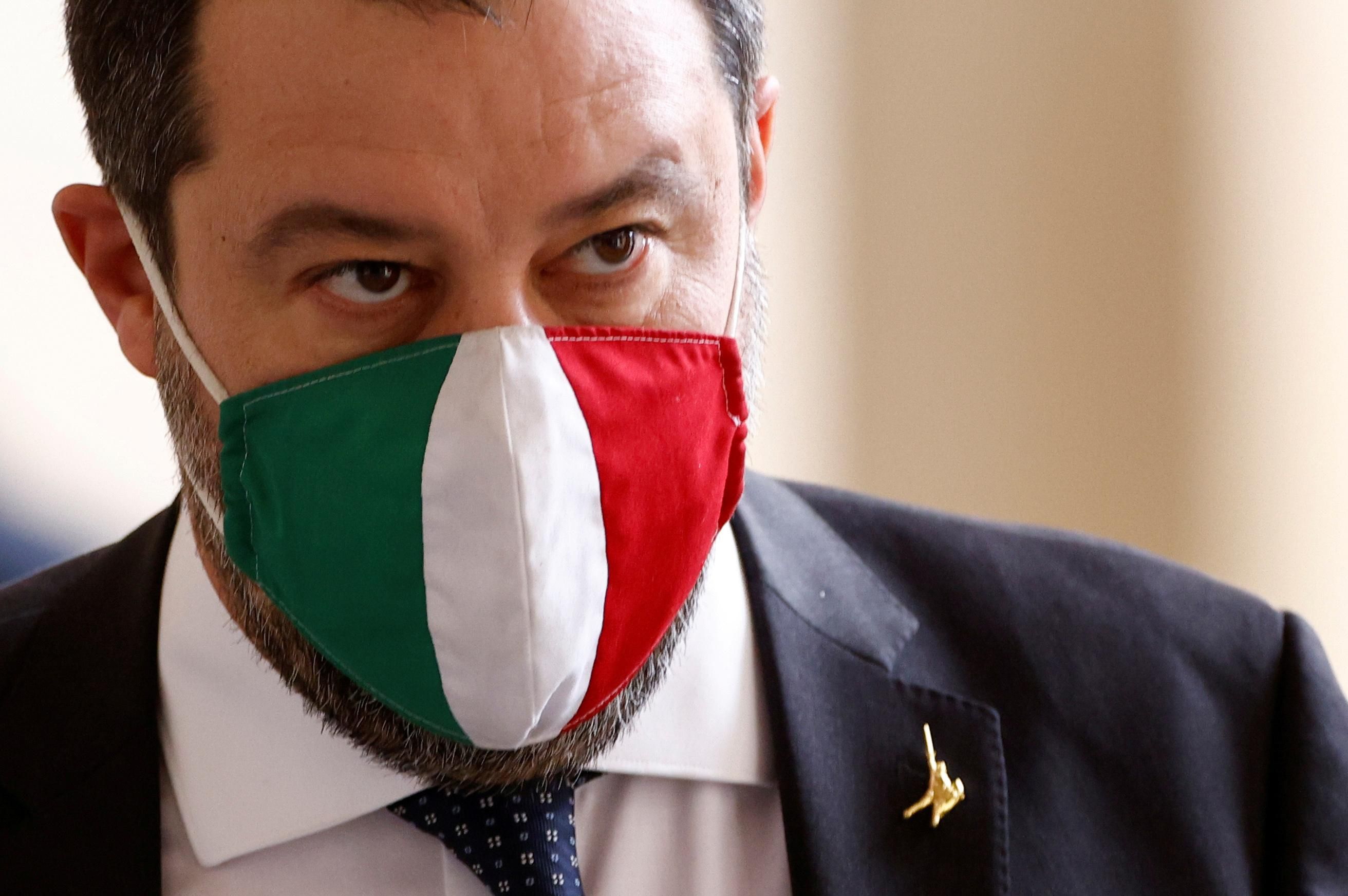March 05, 2021
Italian politician Matteo Salvini has long been one of Italy's most outspoken critics of the EU — just a year ago he called the Union a "den of snakes and jackals." But the plain-spoken firebrand has abruptly changed his tune in recent weeks, joining the national unity government led by Prime Minister Mario Draghi. As far European politicians go, Draghi, a former head of the European Central Bank, is about as pro-EU as you can get. So what might have prompted Salvini's surprising about-face? And what does it mean for the future of far-right populism in the EU's third-largest country?
At a basic level, the chance to have a say in how Italy spends the €209 billion of EU grants and low-interest loans Italy is slated to receive from the EU's coronavirus recovery effort was probably too tempting to pass up. In joining the government, Salvini's Lega party has secured two cabinet portfolios — tourism and economic development — that will play an important role in supporting the recovery.
Yet strategic considerations probably informed the decision too. The coronavirus pandemic has diminished Italians' appetite for the kind of nationalist, anti-establishment rhetoric that has helped to make Lega the country's most popular party. As the health crisis took center-stage, the public has looked instead to predictable, established leadership for reassurance. Perceptions of science and expert opinion have improved.
As a result, joining the national unity government will further the goal of Lega's moderate faction of building a reputation as responsible stakeholders in the eyes of the business community and foreign counterparts. With the erstwhile center-right powerhouse Forza Italia expected to fall apart when 85-year-old party boss Silvio Berlusconi retires from active politics, Lega could be in a position to pick up the pieces by tacking slightly more to the center.
That said, shifts like Lega's are hardly uncommon in Italian politics. In fact, two other major parties have made similar flip-flops of their own: the center-left Democratic Party had vowed never to participate in a government with Lega, and the left-wing populist Five Star had traditionally opposed governments led by technocrats such as Draghi. Now, both are in government again.
In this context, Lega could very well reverse course again if the political winds change direction, as they likely will. If the European debt crisis of the early 2010s is any indication, the political backlash came during the long, grueling process of recovery. Though the EU's decision to ease strict fiscal rules and embrace aggressive stimulus spending have helped soften the blow and might allow for a swifter recovery this time, economic pain is still likely to be intense and long-lasting, creating the conditions for a resurgence of Lega's more openly nationalistic, anti-immigrant rhetoric.
Moreover, the small print of EU's coronavirus recovery funds says that they are conditioned on a series of reforms to Italy's sclerotic economy. Any inkling that these funds, which the public has come to expect, could be delayed or withdrawn for noncompliance would feed a political backlash that Lega will be certain to exploit. And further down the road, the EU's strict debt and deficit rules — a favorite target of Salvini's — will eventually come back into effect in some form, probably with the 2023 budget.
These dynamics will bear close watching in the months ahead, especially given questions about how long this peculiar national unity government will last. New elections must be held by 2023 but could come sooner, for example, if rumors prove correct that Draghi will move to occupy the presidency himself when President Sergio Matarella's term ends in February 2022. Current polling suggests that Lega is well-placed to win the next elections.
If those elections do take place, the EU could soon be facing against an emboldened Lega-led government in Italy. If that happens, would Salvini's party change its stripes again?
Federico Santi is Senior Analyst, Europe at Eurasia Group.
From Your Site Articles
More For You
How is the US is reshaping global power dynamics, using tariffs and unilateral action to challenge the international order it once led? Michael Froman joins Ian Bremmer on GZERO World to discuss.
Most Popular
- YouTube
In this Quick Take from Munich, Ian Bremmer examines the state of the transatlantic alliance as the 62nd Munich Security Conference concludes.
- YouTube
At the 2026 Munich Security Conference, Brad Smith announces the launch of the Trusted Tech Alliance, a coalition of global technology leaders, including Microsoft, committing to secure cross-border tech flows, ethical governance, and stronger data protections.
When the US shift from defending the postwar rules-based order to challenging it, what kind of global system emerges? CFR President Michael Froman joins Ian Bremmer on the GZERO World Podcast to discuss the global order under Trump's second term.
© 2025 GZERO Media. All Rights Reserved | A Eurasia Group media company.
